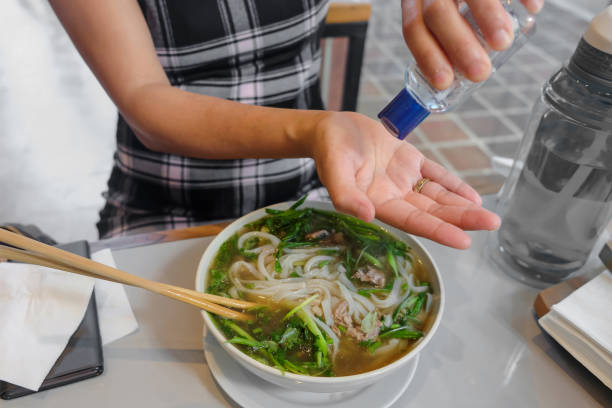Tastes like home: Paste
Bee Satongun, a Michelin-starred chef who won the World’s Best Women Chef award from The World’s 50 Best Restaurants, shares her food philosophy and family cooking at her Mittagong restaurant Paste. Bee Satongun shares her family’s traditional Thai cuisine and the way she balanced the complex flavors.
Satongun says, “The most important thing she wanted me to do was to taste her food so I could tell her whether she needed any other things.” “So, that’s the way she taught me to be able [to] taste the food like I am able to do today,” says Satongun.
Bee Bailey and her husband Jason Bailey, a Southern Highlands native, run a modern Thai restaurant in Bangkok. They also have a branch in Luang Prabang, Laos. Paste Bangkok was awarded a Michelin Star five years in a row, and Bee won the title of Asia’s Best Female Chef in 2018 from the prestigious World 50 Best Restaurants. The pair will open an outpost in Mittagong, a tranquil town located in the Southern Highlands.
Bee describes curry paste as “the essence” of Thai cuisine. She spent many years researching the old Thai dishes that were traditionally served to royal Thai families. These dishes are typically more complex and sophisticated than what ordinary Thais would eat.
Satongun uses old royal recipes to develop her menus. She then adds her creative touch to the dishes by modifying them. Satongun says that 80 percent of her words are based on tradition. The remaining 20 percent is her creative touch, whether it be the tweaking of the flavors or the plating.
She says that Thai food is a balance between death and life. The fresh herbs are the life, and the fish sauce, or dried shrimp, is death. It would be best if you balanced them all when you combine the ingredients.
Satongun grew up in Bangkok, which was vastly different from the concrete jungle it is today. She grew up surrounded by nature in the middle of the city. She climbed trees to pick fruits and fished in nearby waterways. When she was in early adolescence, an expressway through the main road was built, signaling the beginning of “all the trees and all the water.”
Bee can now get her nature fix by living and working in the Southern Highlands. She draws inspiration from the landscape as she drives.
In Thailand, there are no seasons. “Here in the Southern Highlands, you have spring, autumn, and winter,” she says. “Spring is my favorite season here. The spring has that color, and I like to incorporate it into my cooking. “Something that is not pretentious. Something that is natural and the colors that nature produces.”
Satongun buys fresh produce in Cabramatta, a Sydney suburb with a large Vietnamese community. She also works at the local Zen Micro Farm, which grows edible flowers and vibrant micro herbs. Satongun takes advantage of the local produce, even though the tastes are often different from those in Australia and Vietnam.
Each Paste restaurant has its personality. This one in Australia is more casual, and we are using more native ingredients. “We still maintain the traditional flavour profile.”
Satongun adds green Varkala to her southern crab curries, which traditionally combine a curry paste made of lemongrass, galangal, and turmeric with coconut milk. The addition of warrigal leaves to a stir-fried mushroom recipe gives it an Australian twist.
We use greens to enhance the taste of our dishes. This brings the flavor of seawater into our words.
Satongun’s main goal is to preserve Thai cooking traditions and recipes that would otherwise be lost. Paste’s Yum Hawaii is a 150-year-old Thai salad that traveled from Tibet to Burma and then on to Thailand. It was given Thai flavors and character. The salad is based on curry and consists of five different types of vegetables, which are then blanched and mixed with shredded meat.
She says, “This dish is almost extinct.” “This dish is almost extinct,” she says.
Visit Paste to change this.


